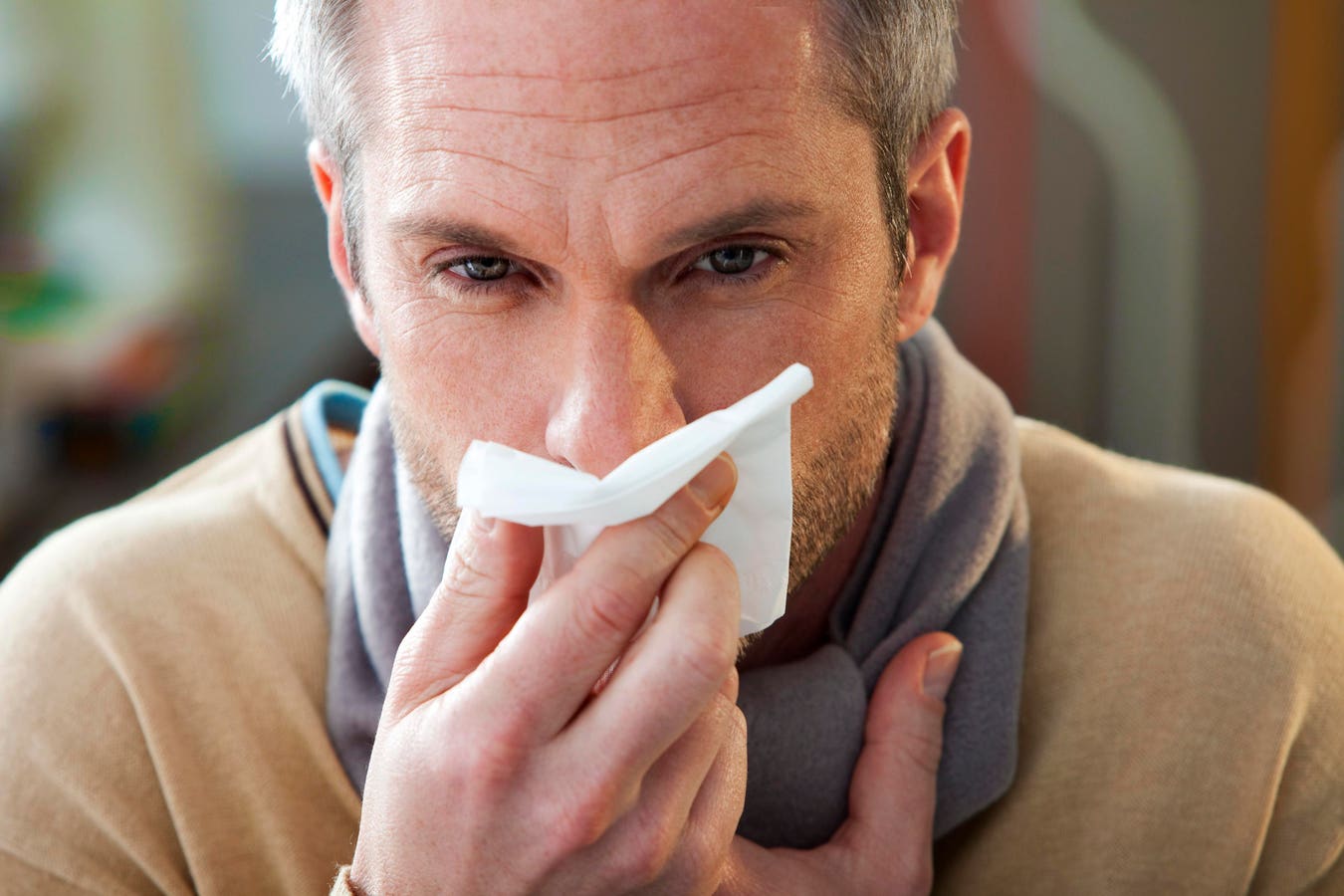In the U.S., the fall months typically bring more than just cooler temperatures, colorful leaves and football games. It’s also the start of the respiratory virus season, meaning that millions will come down with a nasty cold or the flu. While Covid-19, influenza and respiratory syncytial virus all have the potential to cause serious disease, the early symptoms are often mild and indistinguishable, and may include a cough, sore throat, runny nose and body aches.
The overlapping symptoms and potential differences in treatment make a diagnosis important. So when should you take a test, and what type of tests should be used?
When To Take A Covid-19 Home Test
After three-and-a-half years since the pandemic began, almost everyone has taken an at-home Covid-19 test. Most of these are antigen tests, but several at-home molecular tests (i.e., PCR) are now available. These tests offer a convenient way to screen for infection, but they’re not foolproof. Here are three situations where you should think about taking an at-home test:
You Have Symptoms Of Covid-19
If you start to develop symptoms, such as a cough, sore throat, runny nose or body aches, taking an at-home Covid-19 antigen or molecular test makes good sense. But the timing of when you test can play an important role in determining the accuracy of your result. It’s okay to test as soon as you experience symptoms, but if the result is negative, interpret with caution. As the majority of the population has now been vaccinated and/or infected, preexisting immunity may delay the virus reaching peak levels in the respiratory tract. A recent study found that rapid tests have the highest sensitivity — i.e., the best chance to be positive — on the fourth day after symptom onset. So if you test negative on day one, taking another test three to four days later is a good idea before ruling out Covid-19.
You’ve Been Exposed To Someone With Covid-19
You were at your friend’s house watching the Monday Night football game, and after noticing several people coughing and sneezing all evening, your friend calls the next day to let you know he tested positive for Covid-19. You’ve been vaccinated and had Covid-19 a year ago, so should you test?
In most situations, the answer is ‘yes’. But taking an at-home test the day after being exposed will almost certainly return a negative result. So wait five-to-seven days after being exposed, and consider masking during this time when in public. If you develop symptoms, follow the recommendations summarized above.
You’re Visiting A High-Risk Individual
Although the rates of hospitalizations and death due to Covid-19 are currently low, there is still the possibility for devastating consequences if certain individuals are infected, including the elderly or those with a weak immune system. So if you’re visiting a grandparent or friend with cancer this holiday season, taking an at-home test just prior to your visit will help reduce the chance of unknowingly spreading the virus.
When To Get Tested For Influenza And RSV
If you have a respiratory illness and your Covid-19 home tests are negative, you should consider getting tested for influenza and RSV. This is especially important if you develop a fever, have severe symptoms, or are considered a high-risk individual (i.e., <2 years of age, elderly, or immune-suppressed). Unfortunately, at-home antigen tests for influenza and RSV aren’t available in the U.S., but earlier this year, the FDA authorized the first over-the-counter Covid-19 and influenza molecular test.
In most cases, however, you’ll need to see your healthcare provider so a swab can be sent to a lab for PCR testing. Many lab-based PCRs test for influenza and RSV in the same test, and in some cases, Covid-19 as well. Getting tested for these viruses is important since the treatment may differ depending on the virus causing the infection.
If the results of your Covid-19, influenza and RSV tests are negative, it’s important to remember that other viruses can cause a cold-like illness. These include rhinoviruses, coronaviruses, and human metapneumovirus. So as we head into the fall and winter months, the best steps you can take to stay healthy are to wash your hands, wear a mask when in public, and get vaccinated against influenza, RSV (if eligible), and Covid-19. And as always, stay home if you’re sick.
Read the full article here





